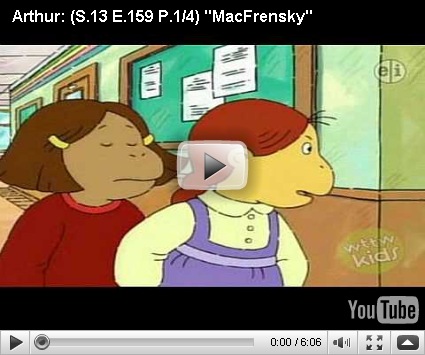So this morning the phone rings at 5:30am, an automated call telling us that school is cancelled due to flooding. Awesome. Wife and kids don’t need to wake up. However this also means an hour and a half for me sitting in a dark house trying not to make any noise.
iPhone and headphones to the rescue, and I finally sit back to enjoy some Playing Shakespeare . For those not in the know, this is a series of actor’s workshops with John Barton, dating back to apparently 1982. Cast includes Ian McKellen, Patrick Stewart, Judi Dench, Ben Kingsley and a whole host of others that I have to admit I do not recognize.
. For those not in the know, this is a series of actor’s workshops with John Barton, dating back to apparently 1982. Cast includes Ian McKellen, Patrick Stewart, Judi Dench, Ben Kingsley and a whole host of others that I have to admit I do not recognize.
All I can say so far is that the people who told me I’d love this, were right! Hours and hours and hours of real actors and directors talking about how to speak the lines, I pray you, trippingly on the tongue? How not to saw the air thusly? I use that example on purpose, because it’s how the show opens, you see.
The show is wonderfully dated – the fashion choices are very interesting, everybody smokes freely throughout, and many of them give off this sort of, I don’t know to say it, this overly dramatic, “I am an actor! I have my method, this is my art!” sort of vibe. Hard to explain. You’ve got this one lady who admits to coming to Shakespeare late and is clearly nervous about her portrayal compared to some others, sitting across from a younger woman who so exudes “I am an actress!” that you can’t help but see her as the type who’ll scream at the director for being an idiot and then storm off to her trailer the minute somebody looks at her cockeyed, accusing them of breaking her character.
Let me put it another way, I think I like to watch actors, but I’m not sure I’d want to hang out with them. :) Lots of “Well, I think it is *this* way,” always followed by lots of “Yes, yes, Judy has said a brilliant thing there, did you all see it? Let’s go with that…” I suppose it’s a normal day at the office for actors.
As an American I have a hard time not seeing it as the Ian and Patrick show, though. This show is nearly 30 years old, but yet I get a kick out of the fact that Sir Ian is the first to interrupt the professor/director (whatever he is) and say “This distinction you’ve been making for the last 10 minutes, between naturalistic and heightened language, I disagree, I think that what you’re talking about is the difference between good and bad acting.” (Not in those exact words, though the latter half is pretty much a direct quote). When Barton tells McKellen to deliver a line “sad”, any other actor might have just thrown on a sad voice and done it but McKellen has to ask, “What, you mean just paint it with a broad brush of sadness?” I suppose it’s like grabbing your nearest Nobel prize winning physicist and asking him to do a simple math problem deliberately incorrectly. You have to stop for a minute and make yourself do that, since you’ve just been asked for a very alien thing.
Then there’s Patrick Stewart. 30 years ago and still no hair. And sweet Jesus does he have an actor’s voice. The minute he opens his mouth he’s a Shakespearean. There’s a funny bit where he does a scene with an actor, then Barton tells them to do it “wrong”, adding pauses where there should not be any. The fellow actor says, “We did it that way once, in rehearsal,” and then quickly puts his hand on Patrick Stewart’s shoulder and says, “Not with you, Patrick, because I know you wouldn’t do it like that.”
I thought that was strangely telling, since he was speaking of a rehearsal, so why wouldn’t somebody be willing to play around with the lines a bit, for creativity? Could it really be the case that, even back then, people like Patrick Stewart and Sir Ian had already risen above their craft to the point where fellow actors were separating themselves? Or am I just reading into that?
I’m only maybe an hour and a half or so into it, but definitely enjoying. I’m finding an interesting distinction of my own, however. I love the Shakespeare, let’s be obvious. Everytime Barton says, “Now let’s hear a scene…” I perk up. I was going to write “even when” it’s a scene I don’t know, then changed it to “especially when”, but then left it out altogether because I’m not really sure which I like better.
But what I don’t like? I don’t like when the actors say, “Here’s how I think of this” or “This is what I think.” Everytime I hear that I’m left thinking “Shut up! I don’t care about you, get back to the text!'” I want to hear how it *is* done, not how this one person would do it. Know what I mean? Somebody expressing an opinion on this stuff sounds very bold to me, I don’t want your opinion, I want what Shakespeare wanted.
I do realize the error in this thinking, since of course it is often the actor’s interpretation that gives us everything. So I do appreciate the end result. I’m just not watching the DVD to hear them pat each other the back, if that makes sense. See earlier bits about not wanting to hang out with actors :).
I’m no actor (obviously), but my favorite quotes from and about actors are often the ones that say (and I first heard Anthony Hopkins say this), “I’m the actor, I do what the director tells me.” It’s easier for me to get in my head the idea that a single person has a vision for this particular production, rather than a dozen people all off doing their own thing and then just kinda sorta coming together mutually. I may be totally far afield here, and just imagining things, but I notice that when Stewart gives a reading he’ll pause and say, “Now, there’s a few different ways I can do this.” To which Barton seems to typically say, “The right way is the way that you feel is right.”
There are many enjoyable bits. I love when Barton makes his actors do a scene several different ways, you quickly see the strength of the text when he does that. Or when one actor is demonstrating from Tamburlaine and has to keep coughing because the delivery is killing his throat (he even curses Marlowe at one point for it).
I’ve only seen a bit so maybe it’s too early to go on and on, but since there’s so much content I think I’ll probably end up doing a series. I also don’t want to end up pissing off my actors by misrepresenting them :).










